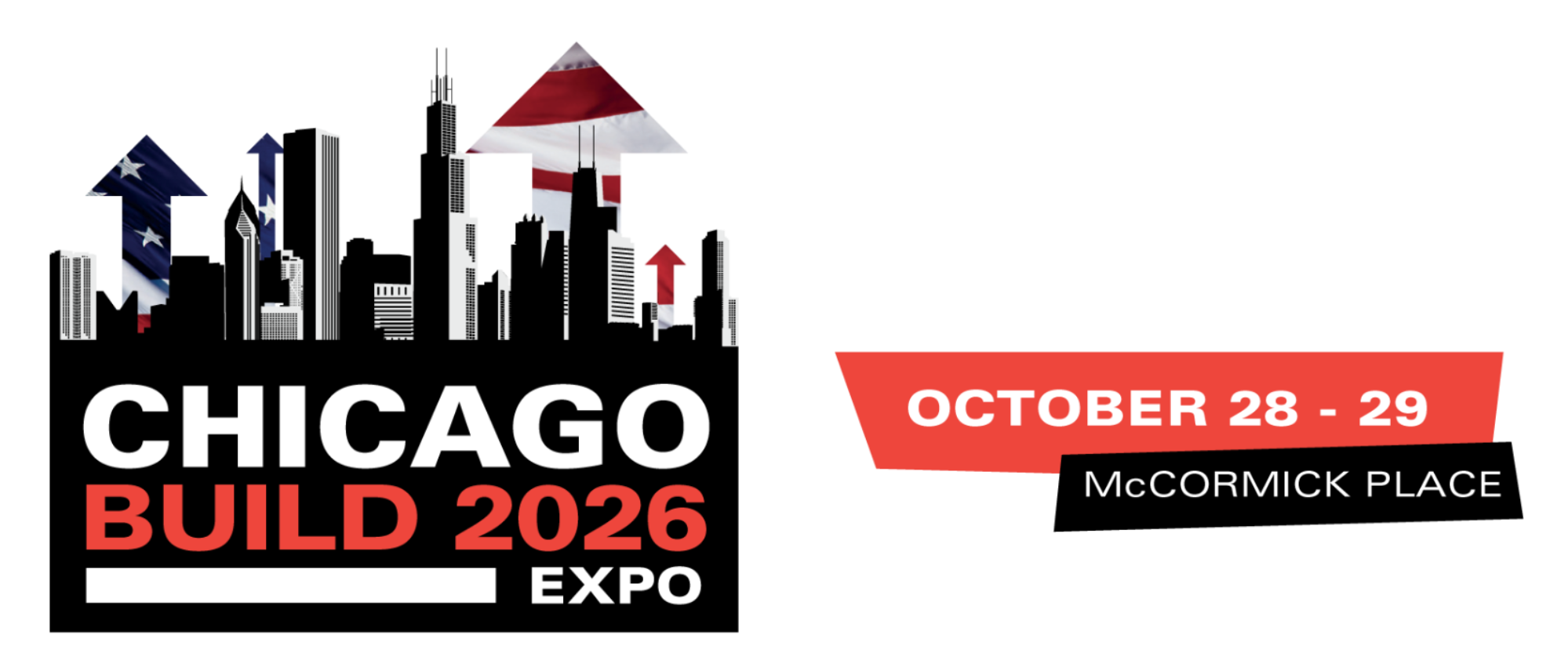Navigating Mental Health in Construction: The Role of Leadership and Inclusivity
)
*Disclaimer*: This article discusses sensitive topics related to mental health struggles. If you or someone you know is struggling, please seek professional help or contact a mental health organisation. Resources are available at the end of this article.
“Based on the most recent CDC data, workers in the construction industry face the second highest suicide rate of any industry in the U.S.—at over three times the national age-adjusted suicide rate.” - Lines for Life
The construction industry is renowned for its demanding physical requirements and fast-paced environments, but it often overlooks a critical aspect of well-being: mental health. As pressures rise, workers face unique challenges that can significantly impact their mental well-being, particularly women and underrepresented groups who encounter additional obstacles such as sexism, isolation, and a lack of representation. Understanding and addressing these mental health issues is essential not only for individual well-being but also for fostering a healthier, more productive workforce.
In this article, we will explore the mental health landscape within the construction sector, discussing the stigma that surrounds mental health issues and the cultural attitudes that contribute to it. We will examine the unique challenges faced by professionals in the industry, particularly women and underrepresented groups, and share effective strategies to support mental well-being. Additionally, we will highlight the crucial role of leadership in promoting mental health awareness and creating an inclusive workplace culture. To gain expert insights, we interviewed Dr. LaToya R. Carraway, a seasoned professional in the industry, who has been working to improve mental health awareness and support for construction workers.
 About Dr. LaToya R. Carraway
About Dr. LaToya R. Carraway
Dr. LaToya R. Carraway serves as the Secretariat for the International Mechanical Code (IMC) Committee, the International Property Maintenance Committee (IPMC), the International Zoning Committee (IZC), and the Fuel Gas Code Committee (IFGC) in the Codes and Standards Development Division at the International Code Council. She joined the Code Council with over ten years of municipal government experience and twenty years of combined expertise as a licensed City of Chicago plumber, a State of Illinois plumber/plumbing inspector, a cross-connection control device inspector, an ICC property maintenance and housing inspector, and an ICC residential energy code/plan examiner.
Dr. Carraway has served on the Z223 Accredited Standards Committee on the National Fuel Gas Code and currently participates in various standards committees. She earned an Associate of Science Degree in Construction Supervision from Washtenaw Community College in Ann Arbor, Michigan, a Bachelor of Science Degree in Organizational Management, and a Master of Science Degree in Management with an Organizational Leadership concentration from Calumet College of St. Joseph in Whiting, Indiana. Recently, she obtained her Doctoral Degree in Healthcare Administration from Virginia University, motivated by the belief that “The Plumber Protects the Health of Our Nation.” Additionally, Dr. Carraway is a mentor for Women in Plumbing and Piping (WIPP) and has recently been appointed as a Diversity, Sustainability, and Mental Health in Construction Ambassador for Chicago Build.
Journey into the AEC Industry
Can you share your journey into the AEC industry? What motivated you to pursue a career in construction, and how have your experiences shaped your perspective on the industry?
“My journey into the AEC industry started with a hands-on interest in how things work behind the wall. I am a third-generation plumber and was always curious about the systems that keep buildings functional, especially plumbing. That curiosity eventually led me to pursue formal training with Local 130 U.A. Joint Apprenticeship here in Chicago and licensing in plumbing. I have not looked back since.”
“What drew me into the construction side of the industry was the combination of technical skill and problem-solving. Plumbing is not just about pipes and fixtures. It is about understanding systems, safety, sustainability, and how to coordinate with other trades to bring a project to life.”
“Early in my career, I worked on a variety of commercial buildings, which gave me a solid foundation and an appreciation for how integral plumbing is to the health and efficiency of any structure. Over the years, I have had the opportunity to collaborate with architects, engineers, and general contractors, which expanded my view of the construction process. I have worked on everything from multifamily housing to medical facilities, where precision and compliance with code are critical.”
“These experiences have made me value the importance of teamwork, communication, and staying up to date with evolving technologies and regulations. Today, I see plumbing and the AEC industry as being on the front lines of critical issues like water conservation, energy efficiency, and smart building design. My perspective has grown from just installing systems to contributing to smarter, more sustainable solutions that benefit both clients and communities. It is a career that keeps challenging me to grow—not just as a tradesperson, but as a professional contributing to something bigger.
Mental Health Awareness
How is mental health perceived in the construction industry?
“In my view, mental health in the construction industry has traditionally been overlooked or stigmatized. For a long time, there has been this “tough it out” mentality—where showing emotion, stress, or vulnerability was seen as a weakness. Especially in trades like plumbing and general construction, the culture has often encouraged people to just push through challenges without talking about what they are going through.”
“The truth of the matter is that women in construction continue to face sexism and misogyny despite notable progress, which causes unnecessary stress and affects one’s mental health.”
Are there any common misconceptions that you’ve encountered?
“One common misconception I have seen is that mental health issues only happen to people who “can’t handle the pressure” or aren't cut out for the work. The reality is that this industry can be incredibly demanding. Mental health struggles are not a sign of weakness. They are often a result of the intense environment many workers face daily.”
“Another misconception is that mental health only affects individuals. The truth is, when workers are burned out, stressed, or dealing with anxiety or depression, it impacts the entire team through lack of productivity, safety, communication, and overall morale.”
Mental Health Challenges
What are some of the unique challenges professionals in the construction industry face that can impact their well-being?
“Construction is a rewarding but challenging industry, and it brings with it a unique set of pressures that can significantly impact the well-being of professionals in this industry. These challenges do not just affect physical and mental health; they also touch on issues of gender diversity.”
“Construction is demanding work. The physical strain takes its toll. I have had colleagues experience chronic back and joint pain for years without addressing it, which led to burnout, both physically and mentally. I now realize that it is hard to focus on mental well-being when your body feels like it is breaking down.”
Can you share personal experiences from yourself or observations from colleagues in the industry?
“For women in the industry, there is an added complexity because working in a male-dominated space can often feel isolating. Perhaps one of the more significant challenges that is often overlooked is the lack of women in construction, which creates its own additional layers of stress that can seriously affect mental health.”
“My experience with working on the job site is that women often must work harder to prove themselves, not just as capable professionals, but also to earn respect in environments that have historically been male dominated.”
Strategies for Support & Change
What strategies or resources do you believe can effectively support mental health in construction?
“Supporting mental health is essential for building healthier, more resilient teams and projects. I have seen some positive changes in recent years. There is more open conversation about mental health now, and some companies are starting to offer resources like employee assistance programs, mental health days, and training to recognize signs of stress or burnout.”
“I have seen some shifts in the right direction though. More companies are recognizing the need for gender diversity, creating supportive environments, and offering programs to ensure everyone has a chance to succeed.”
“Additionally, more women are getting into the trades which help to break down stereotypes, but there is still a lot of work to be done. Ultimately, mental health needs to be a priority for all workers in the construction industry—whether you are a seasoned professional, someone just starting out, or a woman carving out space in a male-dominated field.”
“We need to keep pushing for open conversations and more support structures, so the focus is on the health and well-being of everyone who contributes to the projects we build. For real progress we need to normalize these conversations on job sites and in leadership, and make sure people know it is okay to speak up and ask for help. Mental health is just as important as physical safety in this industry.”
The Role of Leadership
What role do leaders play in fostering a culture of mental health awareness and support within construction teams?
“As someone with a background in organizational leadership, I believe leaders play a critical role in shaping the culture and tone around mental health on construction teams. In an industry known for its toughness, long hours, and high-pressure environments, it’s up to leadership to actively dismantle the stigma around mental health and replace it with support, trust, and open communication.”
“One of the biggest responsibilities leaders carry is setting the example. If supervisors, foremen, or project managers never talk about stress, work-life balance, or mental well-being, the message is clear that those topics are off-limits. On the flip side, when leaders are willing to be transparent while encouraging conversations around mental health, it opens the door for others to do the same.”
“Another key role is creating psychological safety to foster a work environment where employees feel safe to speak up without fear of being judged or penalized. That starts with listening. A good leader should respond with empathy. Leaders also have the power to build systems of support. That can look like providing access to mental health resources, integrating well-being into safety meetings, or encouraging the use of employee assistance programs.”
“For women and underrepresented groups in construction, leadership’s role is even more important. They must ensure inclusive, respectful environments where everyone feels seen and valued, not just tolerated. That requires actively challenging bias and fostering mentorship and growth opportunities.”
“I believe that leaders must embrace long-term thinking. Investing in mental health is not just about supporting individuals, it is about building stronger, safer, and more resilient teams. When people feel supported and seen, they communicate better, make fewer mistakes, and stay committed for the long haul. In a field that relies on coordination, trust, and physical safety, prioritizing mental health is not a soft skill, it is a strategic leadership decision that impacts every layer of performance and well-being.”
How to Encourage Open Conversations
How can the industry encourage open conversations about mental health and reduce stigma among workers?
“Encouraging open conversations about mental health and reducing stigma in the construction industry requires both cultural shifts and practical initiatives. It is about creating an environment where employees feel comfortable discussing their mental health without fear of judgment or repercussions.”
“Leaders should set the tone by being transparent about their own struggles and mental health. When leaders model vulnerability, it encourages others to follow suit. Much like safety protocols are a core part of construction work, mental health awareness should be integrated into regular training and meetings.”
“In construction, we do toolbox talks for physical safety—why not for mental safety too? Toolbox talks should include mental health as a potential ‘risk’ factor. When an employee does bring up stress or mental health concerns, they should feel heard and supported, not dismissed or ignored.”
“Offering mental health training or workshops for all staff would be helpful to enable all workers to spot signs of mental distress and would give each employee the tools to approach someone who may be struggling to offer help or resources.”
“Mental health resources should be designed with inclusiveness in mind. Women, for instance, may face unique stressors in a male-dominated environment and could benefit from specific support groups or initiatives that address these challenges.”
“I believe that consistency is the key to build a culture where mental health is discussed regularly, supported openly, and destigmatized as part of the broader conversation about safety and well-being.”
In conclusion, the construction industry faces significant mental health challenges that require urgent attention, particularly as it grapples with the alarming statistics surrounding suicide rates. As we've explored, women and underrepresented groups encounter additional hurdles that can exacerbate mental health struggles, highlighting the need for a more inclusive and supportive environment.
Leadership plays a crucial role in fostering a culture of mental health awareness, dismantling stigma, and promoting open conversations. By prioritizing mental well-being alongside physical safety, leaders can create an atmosphere where all workers feel valued and supported.
We extend our heartfelt thanks to Dr. LaToya R. Carraway for sharing her insights and experiences. Her dedication to improving mental health awareness in the construction sector is a vital step toward building a healthier, more resilient workforce. Together, by addressing these issues and committing to change, we can construct a future where mental health is as prioritized as physical safety in the industry.
Help is Available
The Construction Industry Alliance for Suicide Prevention:
-
988 offers 24/7 access to trained crisis counselors who can help people experiencing mental health-related distress.
-
Text HELLO to 741741. Every person is connected with a crisis counselor, who is trained to listen and offer sound advice.
Construction Suicide Prevention Project (CSPP):
-
Get Help Now: https://www.suicide-stops-here.org/get-help-now/
-
Construction Careline: Call 833-444-6020
At Chicago Build, we recognize the critical importance of mental health in the construction industry, and our speakers and panel discussions are designed to highlight this vital issue. With over 400 industry leaders sharing their expertise across various stages, we aim to inspire and educate our 30,000+ attendees on the significance of mental well-being in creating a healthier work environment.
Join Dr. Carraway in fostering a culture of support and understanding by participating in our Mental Health in Construction Ambassador Program. This initiative allows you to collaborate with like-minded professionals and take meaningful steps towards improving mental health awareness and resources within the industry. Become part of the Ambassador Community today!

